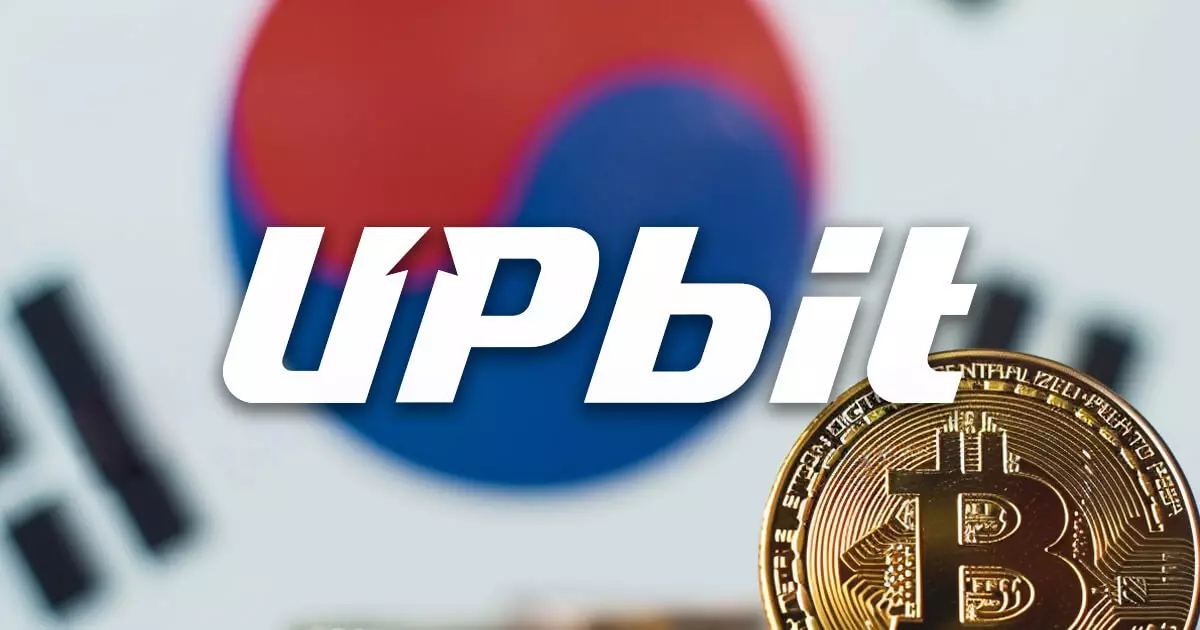In recent developments, South Korea’s Financial Services Commission (FSC) has decided to delve into the operations of Upbit, the country’s foremost cryptocurrency exchange. The scrutiny stemmed from apprehensions regarding the platform’s overwhelming influence within the virtual asset marketplace. FSC Chairman Kim Byung-hwan has underscored the potential risks associated with a significant reliance on Upbit, particularly in light of comments by lawmaker Lee Kang-il. This investigation is indicative of a broader concern regarding the intertwining of traditional financial systems and the rapidly evolving world of digital assets.
The concerns are significantly amplified due to Upbit’s strong connection with K Bank, South Korea’s pioneering internet-only bank, established in 2017. With K Bank gearing up for a substantial Initial Public Offering (IPO) aimed at gathering approximately 984 billion won (around $731.64 million), the entwined fates of Upbit and K Bank raise red flags about market stability. Lawmaker Lee has pointed out that a considerable portion of K Bank’s total deposits—4 trillion won of its 22 trillion won—derives from Upbit’s operations, which constitutes near 20% of the bank’s full portfolio. This interdependency illuminates a precarious balance; disruption in Upbit’s functionality could dangerously instigate a mass withdrawal from K Bank, creating potential turmoil in the financial sector.
Further complicating matters, K Bank has been criticized for its high-interest offerings—specifically, a 2.1% interest rate on deposits linked to Upbit transactions. This rate has led to suspicions regarding its sustainability, especially when weighed against the bank’s relatively low profit margins. Lawmaker Lee’s critique highlights a crucial aspect of the current financial ecosystem—can a profitable model emerge when digital asset exchanges and banking institutions are so closely connected? The risk of a systemic failure looms large if such interest rates cannot be maintained, especially given the volatility and unpredictability of cryptocurrency markets.
In response to these complexities, the FSC has indicated that K Bank’s IPO process will be meticulously reviewed, signaling a proactive approach to safeguarding financial stability. The Virtual Asset Committee, tasked with overseeing digital assets in South Korea, will also play a critical role in this assessment. This regulatory body will seek to understand and mitigate risks that can arise from the nexus of conventional banking and cryptocurrency trading.
The Collaborative Future of Finance
Interestingly, the investigation arrives shortly after a significant collaborative move between Dunamu—the parent company of Upbit, K Bank, and BC Card. They recently signed a memorandum of understanding (MOU) to pioneer a cooperative digital financial services model. By integrating Dunamu’s trading platform, K Bank’s mobile banking capabilities, and BC Card’s payment processing infrastructure, the consortium aims to bolster South Korea’s digital financial framework. However, the simultaneous inquiry into Upbit hints at the broader implications of such partnerships, raising questions about the principles of financial separation and potential market monopolization.
The unfolding situation involving Upbit and K Bank encapsulates the tension between innovation and regulation in South Korea’s financial landscape. As the FSC undertakes this crucial investigation, stakeholders in both traditional and digital financial sectors will undoubtedly watch closely, awaiting the repercussions on an industry that is still in its formative phase.














Leave a Reply